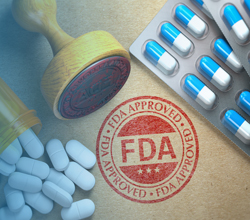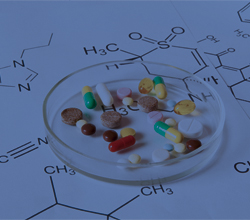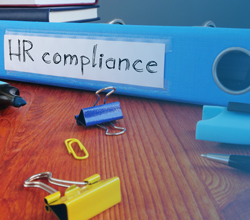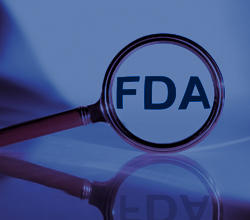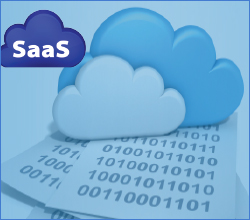
What are best practices for creating a Risk Management File?
 Dennis Moore
Dennis Moore
 60 Min
60 Min
Product Id: 701233
This Quality management training will review processes for integrating a reasonable level of risk management into the quality management system.

Evaluating the Effectiveness of your ERM Program: Linking shareholder value with superior governance and ERM
 David R Koenig,Dr. Robert Mark
David R Koenig,Dr. Robert Mark
 60 Min
60 Min
Product Id: 701231
This Enterprise Risk Management training (ERM) will provide a framework for evaluating the effectiveness of risk management based on an inventory of questions an effective ERM program should be able to answer.

Risk Evaluation and Mitigation Strategies (REMS) what you need to know in order to comply with FDA's new requirements
 R. Wayne Frost
R. Wayne Frost
 60 Min
60 Min
Product Id: 701155
This FDA compliance training will be valuable who are involved in the development of REMS and who are planning a submission and need to understand what might be required by FDA and how to comply and for those who have Risk Management Plans.

Using ICH Q9 and Recent FDA Comments as the Foundation for the Planning, Development and Execution of Risk-Based Cleaning Validation Studies
 John Hyde
John Hyde
 90 Min
90 Min
Product Id: 701184
This Cleaning validation training will provide valuable assistance to all regulated companies that need to develop and validate their equipment cleaning processes. This session will address risk-based approaches to cleaning validation studies using ICH Q9 and recent FDA comments and observations as a foundation. Recent FDA warning letters illustrate just how critical good cleaning practices are. Understanding and employing good cleaning practices are instrumental to improving cleaning consistency, quality and traceability. The FDA favors automated CIP systems since they reduce operator variability while enhancing consistency and reproducibility. Our research has indicated that in the last 5 years, cleaning citations were noted in 50% of warning FDA letters. Many cited contamination issues have an element of poor cleaning practices associated with them. Examples include “investigations…did not include an evaluation of the cleaning processes and procedures…to determine if equipment cleaning is effective in preventing cross contamination of the inactivated batches”, FDA Warning Letter, Jan 2008; "vaccine manufacturing plant in Pennsylvania, has been served with an FDA warning letter asking for measures to ensure batches of its flu shot ingredients do not become contaminated again.” Jul-2006..
An overview of ICH risk management techniques and how to apply them to equipment cleaning programs will be discussed. In addition, case studies from manufacturing facilities will be used to illustrate risk-based cleaning validation principles and practices.

Integrating Risk Management with the Quality System
 Edwin L Bills
Edwin L Bills
 90 Min
90 Min
Product Id: 701039
The purpose is to assure that the medical product is designed, manufactured, and distributed in such a manner that the customer receives the safest possible product. This webinar will provide guidance to those responsible for implementation of risk management processes in medical product companies.

510(k) Applications made Simple
 E.J Smith
E.J Smith
 60 Min
60 Min
Product Id: 701082
This 510(k) Training covers the content requirements of a traditional 510(k) application and covers in detail the recommended 20 sections. This 510(k) Training deals only with those medical devices that require a 510(k) application. All Manufacturers introducing Class II medical devices to the US market must submit a FDA 510(k). It is also required for manufacturers that are changing the intended use of the medical device, or changing the technology of a cleared device such a way that it may significantly affect its safety or effectiveness.

Risk Management and the Risk Assessment Process
 Bernice Russell Bond
Bernice Russell Bond
 90 Min
90 Min
Product Id: 701047
This Risk Management training will cover Risk management & Risk assessment within all business processes. Risk management is a concern that must be taken seriously in all aspects of your business. Are you prepared for the problems you may face?

Applying Human Factors Best Practices for Medical Device Risk Management
 Robert A North
Robert A North
 60 Min
60 Min
Product Id: 701051
This session will highlight typical manufacturer pitfalls in designing user studies and usability tests as well as common mistakes and omissions regarding use error in PMA and 510K submissions. This webinar will apply to manufacturers with devices that require user-device interactions to set-up, operate, and maintain the device.

Complying with Sarbanes Oxley (SOX), Section 404
 Bernice Russell Bond
Bernice Russell Bond
 90 Min
90 Min
Product Id: 700944
Learn how to comply Sarbanes Oxley compliance in a cost-efficient manner. Many have questioned whether the Sarbanes-Oxley law requirements can be met in a cost-efficient manner. Absorbing the first-year lessons — and, going forward, is a challenge facing all public companies as they prepare to meet quarterly and annual reporting requirements. And further challenges will arise as new compliance issues emerge and PCAOB regulations evolve.

Leveraging SOX Anti-Fraud Programs to Reduce Company-Wide Risks
 Peter Goldmann
Peter Goldmann
 60 Min
60 Min
Product Id: 700938
The training supports SOX Compliance (particularly Section 30 as it pertains to anonymous hotlines), and conforms to key criteria of the revised US Federal Sentencing Guidelines. Know how to promptly and effectively REPORT incidents of fraud or suspicious conduct.

Validating spreadsheets: strategies for satisfying FDA requirements
 Alfonso Fuller
Alfonso Fuller
 90 Min
90 Min
Product Id: 700969
This presentation explores strategies for recognizing when validation is required, how to achieve compliance and what documentation needs to be generated and maintained.

Process Validation, planning, strategy, requirements, risk assessment, design description
 Peter Calcott
Peter Calcott
 60 Min
60 Min
Product Id: 700891
While simple to describe many companies fall into the trap of territoriality, and confusion of roles and responsibilities. This webinar will walk through the elements of a process validation program for biological products with an emphasis on the involvement of all functions especially process development.

Implementing a Risk-Based Internal CGMP Annual Audit Program
 John E Lincoln
John E Lincoln
 90 Min
90 Min
Product Id: 700427
How do you create and blend the Risk Management File findings into your annual audit plan? How is it established, maintained, formally updated, and documented? Structured, defined and scheduled internal CGMP compliance audits are a specific requirement of US FDA 21 CFR 820 and ISO 13485 (devices), implied in 21 CFR 210, 211 (pharma)

Medical Device Software Risk Analysis
 Edwin L Bills
Edwin L Bills
 60 Min
60 Min
Product Id: 700902
This webinar discusses the use of risk analysis techniques applied to medical device software including discussions of pitfalls in the process of risk analysis. This webinar will provide guidance to medical device companies that need to perform risk analysis on their software products and internal systems.

Risk-Based Software V&V - FDA,GAMP®, 14971
 John E Lincoln
John E Lincoln
 90 Min
90 Min
Product Id: 700814
This risk-based software V&V training will guide you through 11 "must have" elements of software validation and how to use your Risk Management Tools (per ISO 14971:2007).

Hazard Analysis & Risk Management - New 14971
 John E Lincoln
John E Lincoln
 90 Min
90 Min
Product Id: 700813
Attendees will be helped to see how to develop a compliant Hazard Analysis / Risk Management File and Report. The US FDA is increasingly stating that many regulated activities should be "risk-based". Major resource-consuming activities such as product and process / equipment / facility, and software validation, CAPA investigations, vendor audits can all be tailored to a risk based approach.

Writing Effective Suspicious Activity Reports
 Kenneth Barden
Kenneth Barden
 60 Min
60 Min
Product Id: 700482
The keystone of AML compliance is the reporting to proper authorities of those transactions and activities considered to be suspicious

Maintaining an Effective CAPA Program and Using Risk Assessment Tools: Current Trends
 David Dills
David Dills
 60 Min
60 Min
Product Id: 700746
Learn how to use and how far to go with an effective and efficient approach for your CAPA investigation. This webinar will provide valuable assistance and guidance to all regulated companies that are preparing to use or are currently using risk-based tools for CAPA investigations and closing out investigations in a timely manner.

Practical tips to comply and implement the Adverse Event Reporting requirement of the new Dietary Supplement and Nonprescription Drug Consumer Protection Act
 Ashish Talati
Ashish Talati
 60 Min
60 Min
Product Id: 700754
The Webinar discusses recordkeeping requirements of serious and non-serious adverse events reported to a dietary supplement manufacturer, packer, or distributor. The Dietary Supplement and Nonprescription Drug Consumer Protection Act law mandates reporting to the Food and Drug Administration (FDA) of serious adverse events for dietary supplements.

Conducting and Documenting Proper Risk Analysis In compliance with ISO 14971
 Edwin L Bills
Edwin L Bills
 60 Min
60 Min
Product Id: 700713
The presentation will review the complete requirements for Risk Analysis and give an example of how a company can easily create a Risk Analysis in full compliance with the standard. The information will assist in meeting various national and global regulatory requirements for medical devices.

